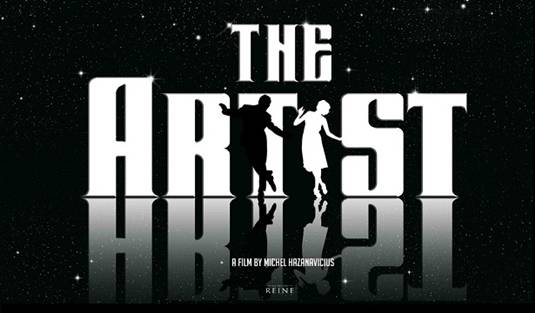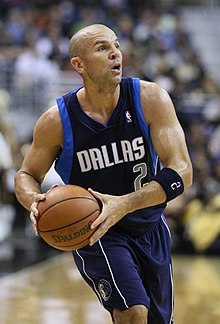1.
Carlos. Bravura narrative filmmaking on a hugely ambitious scale,
Carlos is a spectacular achievement. Part of the accomplishment of
Carlos is the sheer accumulation of detail the movie amasses, and the long running time gives you a deeper sense of the terrorist lifestyle, and when and why Ilich gradually succumbed to ego and self-glorification without realizing it.
2.
A Film Unfinished. The first Holocaust movie that's actually about another Holocaust movie, and in some peculiar way it brings us closer to the terror and tragedy of the original event.
3.
Inside Job. If you think you've absorbed all you could about subprime mortgages, credit default swaps and the arcana of elaborate derivatives, think again.
Inside Job traces the history of the crisis and its implications with exceptional lucidity, rigor and righteous indignation.
4.
Still Walking. This small gem of a movie always feels true and real as it gently reveals the quiet moments that define our lives.
5.
13 Assassins. Epic in scope, ambition, and execution, it's a classic swords-and-samurai film with postmodern blood and guts, and it's completely satisfying.
6.
Cave of Forgotten Dreams. Imagine an opulent movie palace that was 30,000 years old, with posters preserved on the curving walls and the bones of the Stone Age patrons peacefully sleeping in the fairy dust. That's essentially what archeologists found in a French canyon in 1994 and what Werner Herzog brings back to life in this extraordinary documentary.
7.
Of Gods and Men. Like the best spiritual movies, of whatever faith,
Of Gods and Men moves us toward a union with the infinite, and when we come to the monks' last supper, the moment is staggeringly powerful.
8.
Uncle Boonme Who Can Recall His Past Lives. A work of unostentatious beauty and uncloying sweetness, at once sophisticated and artless, mysterious and matter-of-fact, cosmic and humble, it asks only a measure of Boonmeevian acceptance: The movie doesn't mean anything — it simply is.
9.
Lebanon. Gives us viscerally violent, intensely distressing glimpses into war's annihilation of people, places, and communities.
10.
The Tillman Story. A probing examination of truth, decency and the American way. It also explores deception and military propaganda and lays bare the ravages of grief.
11.
Another Year. Mike Leigh has a knack of making the ordinary extraordinary. Here he deals with themes of class, family and depression over a period of a year, breaking it up into seasonal chapters.
12.
Exit Through the Gift Shop. A beguiling and subversively funny entertainment that considers art's worth from many angles, including that of guerrilla painters, gallerists, and seasoned collectors.
13.
Guy and Madeleine on a Park Bench. Visually distinctive and aurally delightful,
Guy and Madeline on a Park Bench has style to burn. A soulful black-and-white commentary on love, art and their competing demands, this Boston-based musical from Damien Chazelle floats on a wave of spontaneity and charm.
14.
Animal Kingdom. Joins in the tradition of brutally unsentimental Australian crime dramas like
The Boys, in which the stakes are low, except to the people staring down the barrel of a gun.
15.
The Illusionist. Absolutely mandatory viewing for aspiring animators and filmmakers. (In terms of pacing, scoring, editing, and narrative, it's a film school unto itself.) For the rest of us, however, it's simply magic.
16.
Incendies. A devastating mystery thriller from Quebec filmmaker Denis Villeneuve that grabs you hard and won't let go.
17.
The Trip. Have you ever been trapped in the back seat of a car while the old married couple up front bickers and banters for hours? It's either sheer torture or, if the couple happens to be Steve Coogan and Rob Brydon, wildly entertaining.
18.
Blue Valentine. A small but shattering film that marks its writer-director, Derek Cianfrance, as an artist of real depth, observes relationship dynamics at a molecular level, welling with as much understanding as Ingmar Bergman's
Scenes from a Marriage.
19.
Meek’s Cutoff. There's nothing out there remotely like
Meek's Cutoff, for which some viewers may be thankful. The ending seems calculated to drive the literal-minded screaming off of their couches and yet it's the only possible way out.
20.
Fish Tank. A brilliantly acted and achingly bleak coming-of-age story.
21.
Bill Cunningham, New York. Rarely has anyone embodied contradictions as happily and harmoniously as octogenarian
New York Times photographer Bill Cunningham.
22.
Waste Land. A fascinating look at the complex intersections of art and charity, reality and perception.
23.
Waiting for Superman. Argues convincingly that everyone should have the right to a good education, not just folks lucky enough to score winning numbers: It should be a birthright, not a matter of chance.
24.
Mademoiselle Chambon. This small, nearly perfect film is a reminder that personal upheavals are as consequential in people's lives as shattering world events.
25.
My Dog Tulip. As disconcerting and unusual a piece of animation as the 1956 memoir that inspired it, and that is saying a lot.


















